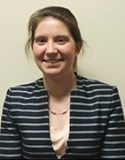SUN, 30 OCT // 8:00 AM – 5:30 PM
Primary Content Focus: Clinical practice (assessment, diagnosis, treatment, knowledge translation/EBP)
Secondary Content Focus: Brain Injury, Geriatric Rehabilitation, Measurement, Stroke
This one-day interactive workshop is designed for rehabilitation professionals who wish to expand their knowledge of an ecologically valid cognitive assessment the Multiple Errands Test (MET), and to develop a version for use at their own clinical site. The MET is one of very few ecologically valid assessments of executive dysfunction available. It involves real-life tasks including shopping and collecting information while following specified rules. Participants will learn about executive functioning and the MET. Participants will have the opportunity to experience doing a MET in small groups, practice scoring and interpreting a MET through a case study, then create a version of the MET for use in their workplace.
LEARNING OBJECTIVES
- To gain familiarity with the development and construction of the MET
- To practice and attain basic skills in the administration, scoring and scoring interpretation of the Multiple Errands Test
- To gain knowledge of psychometric properties of the MET
- To consider the clinical utility of the MET
- To develop a version of the MET specific to their work-site
KEY WORDS
- Executive Function
- Patient outcome assessment
- Neurological Rehabilitation
FACULTY
 Deirdre Dawson, PhD, OT Reg.(ON.)
Deirdre Dawson, PhD, OT Reg.(ON.)
Senior Scientist, Rotman Research Institute, Baycrest
Dr. Dawson is a Senior Scientist with the Rotman Research Institute at Baycrest in Toronto, an Associate Professor in the Department of Occupational Science, & Occupational Therapy at the University of Toronto, an Adjunct Scientist at the Toronto Rehabilitation Institute and a member of the Heart & Stroke Foundation of Ontario Centre for Stroke Recovery. She received her Bachelor of Science in Rehabilitation from the University of British Columbia, her MSc in Epidemiology and her PhD in Neuropsychology from the University of Toronto. She is a licensed occupational therapist in Ontario. Dr. Dawson has published more than 130 peer-reviewed articles and abstracts including more than 10 related to the Multiple Errands Test. Three additional papers are in preparation. Dr. Dawson has also presented papers, posters and workshops nationally and internationally. She and her trainees have given more than 115 presentations worldwide in the last five years, 27 of which were invited. Dr. Dawson is also a highly active researcher. She holds five active grants and has garnered more than $10 million in grant monies over the course of her scientific career.
 Emily Nalder, PhD, BOccThy (Hons)
Emily Nalder, PhD, BOccThy (Hons)
Assistant Professor, University of Toronto
Dr. Nalder is an occupational therapist and the March of Dimes, Paul J.J. Martin Early Career Professor in the department of Occupational Science and Occupational Therapy at the University of Toronto. She completed her Bachelor of Occupational Therapy and Doctorate at the University of Queensland in Australia and her post-doctoral fellowship at the Rotman Research Institute at Baycrest in Toronto. Dr. Nalder’s research program examines the complex factors related to people, environments, health services, and technology that influence the everyday participation of adults with executive dysfunction secondary to injury (e.g., acquired brain injury) or the aging process. Dr. Nalder has published over 20 papers and abstracts, and given over 20 presentations at national and International conferences. Her curriculum vitae is appended.
 Amanda Clark, PhD
Amanda Clark, PhD
Assistant Professor, University of Tennessee at Chattanooga
Dr. Clark is an Assistant Professor in the Psychology Department at the University of Tennessee at Chattanooga (UTC). Before joining UTC, Dr. Clark completed Masters and PhD degrees in Cognitive Neuroscience at the University of Waterloo. She also completed a Post Doctoral Fellowship at the Rotman Research Institute where she investigated the functional impact of traumatic brain injury, stroke and healthy aging. Today, Dr. Clark is continuing that research with the help of undergraduate and graduate students where they study errors of everyday living that result from executive dysfunction, healthy aging, executing overly routine tasks and mind-wandering. To that end Dr. Clark’s research focuses on the establishment, development and adaptation of tasks, like a UTC version of the Multiple Errands Test, that are first reflective of one’s actual competence in daily life, and second, effective at dissociating participants based on both injury status and severity.
One full day of Instructional Courses: $199 // Three full days: $399
WORLD PASS (from $599) is the best value if you attend the CORE Conference and just one instructional course.
CLICK HERE for pricing detail.
CONFERENCE HOME PAGE >>>
ALL PRE-CONFERENCE COURSES >>>
*Although significant changes are not anticipated, all schedules, sessions, and presenters posted on this website are subject to change.










